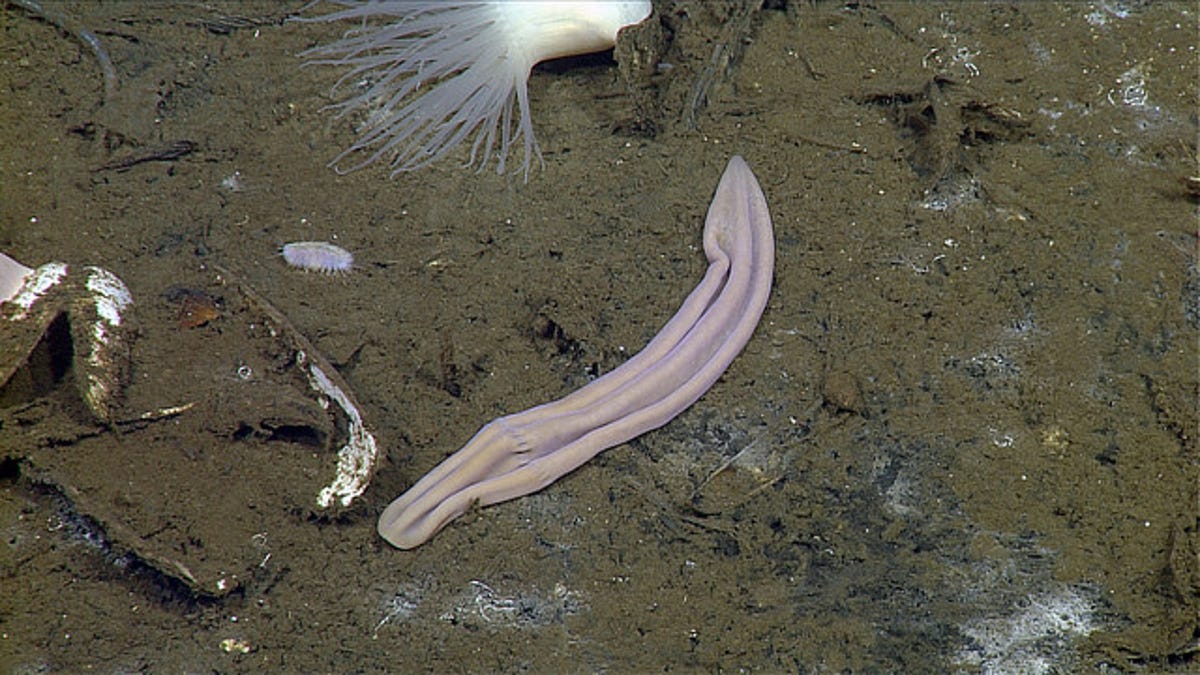See the brainless 'purple sock' worm scientists found under the sea
The sea floor is a wonderland, and scientists have discovered some new species of worm-like critters that look like discarded laundry items and churros.
An old mystery has puzzled scientists for more than 60 years. It involves a flat, pinkish, worm-looking creature discovered near Sweden under the sea in 1950. Until now, the worm-like genus Xenoturbella had been hard to place in the hierarchy of the animal kingdom, but a study published Wednesday puts them firmly "near the base of the evolutionary tree."
Twelve years of collection and study turned up four new species to add to the first found all those years ago. Researchers gathered specimens from off the coasts of Mexico and California and performed anatomic and genetic analyses to identify the new species. What might entertain lay people is that the critters look a lot like discarded laundry items and fried pastries.
The study in the journal Nature describes the deep-water species. The researchers say some of them resemble "purple socks." Another of the discoveries is now named Xenoturbella churro, since it looks like a sea-logged version of the popular fried treat, minus the sugar and cinnamon topping.
The unusual creatures have been called everything from flatworms to mollusks, but the Scripps Institute of Oceanography now refers to them as deep-sea worms. "The findings have implications for how we understand animal evolution," said Scripps marine biologist and lead author Greg Rouse.
The invertebrates tend to hang out near "deep-sea cold seeps, hydrothermal vents, and whale carcasses." They are very simple beasts that have no brains, eyes or gills. The only opening is a mouth. The largest, Xenoturbella monstrosa, is a mere 8 inches in length (about 20 centimeters).
Video footage of one of the worms shows that they are slightly more exciting to watch than a pet rock. While bigger sea animals like whales and dolphins may attract more attention, these sock- and snack-like critters are helping scientists learn more about the evolution of organs in the animal world.
Rouse expects the four new species to be just the beginning of a series of new discoveries of similar sea worms. Perhaps researchers will find one that looks like a popular Mexican dish and name it Xenoturbella relleno.


